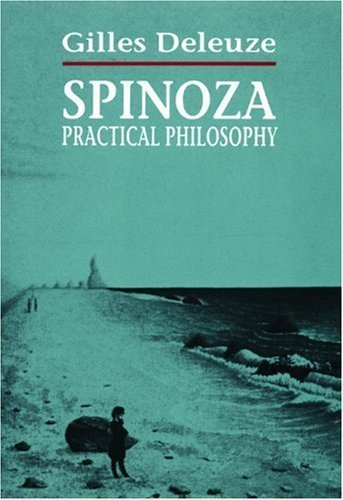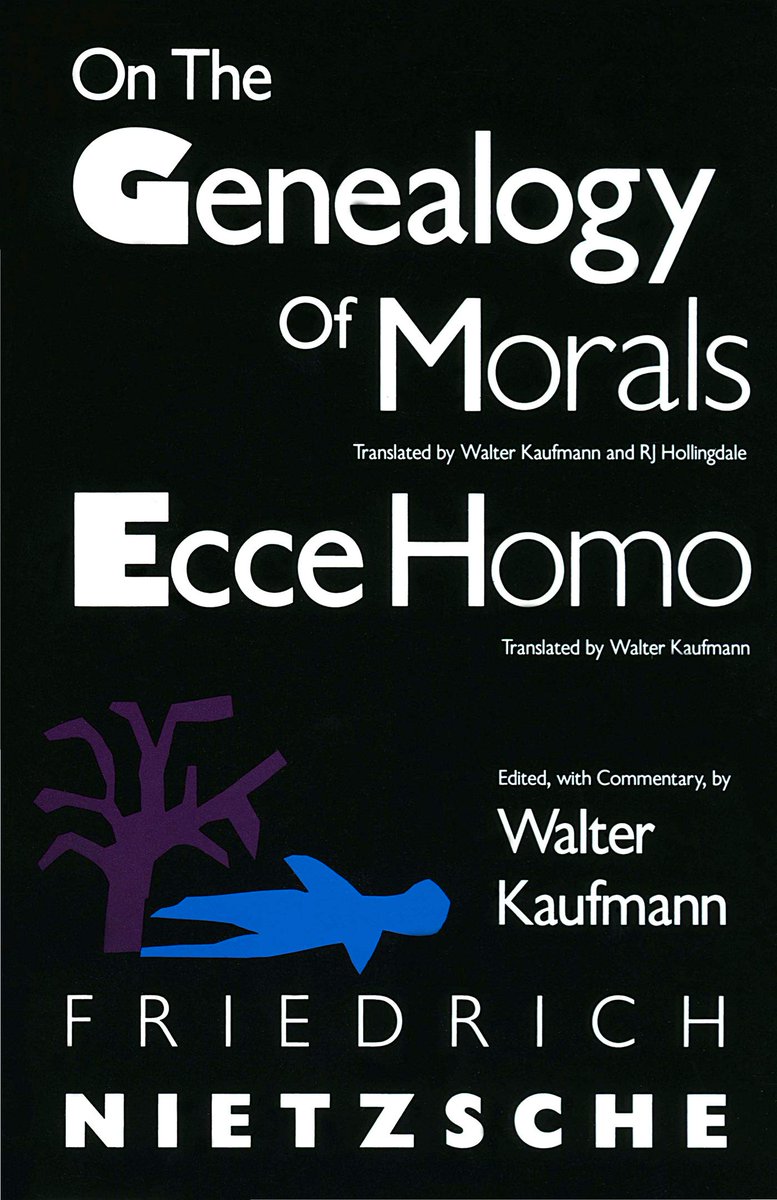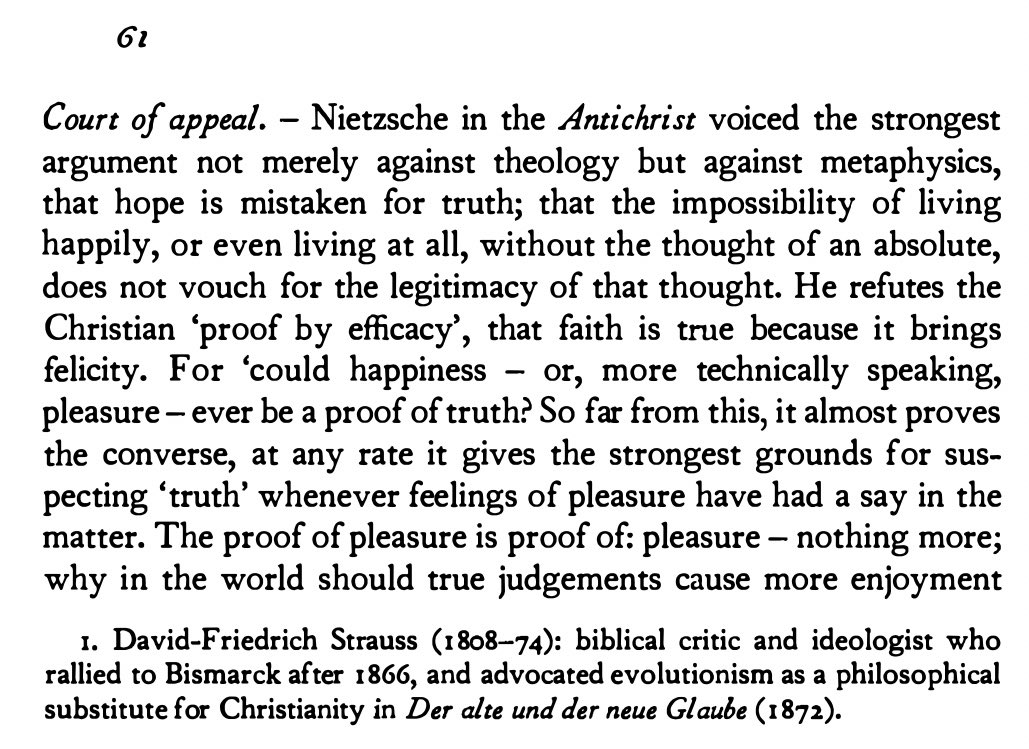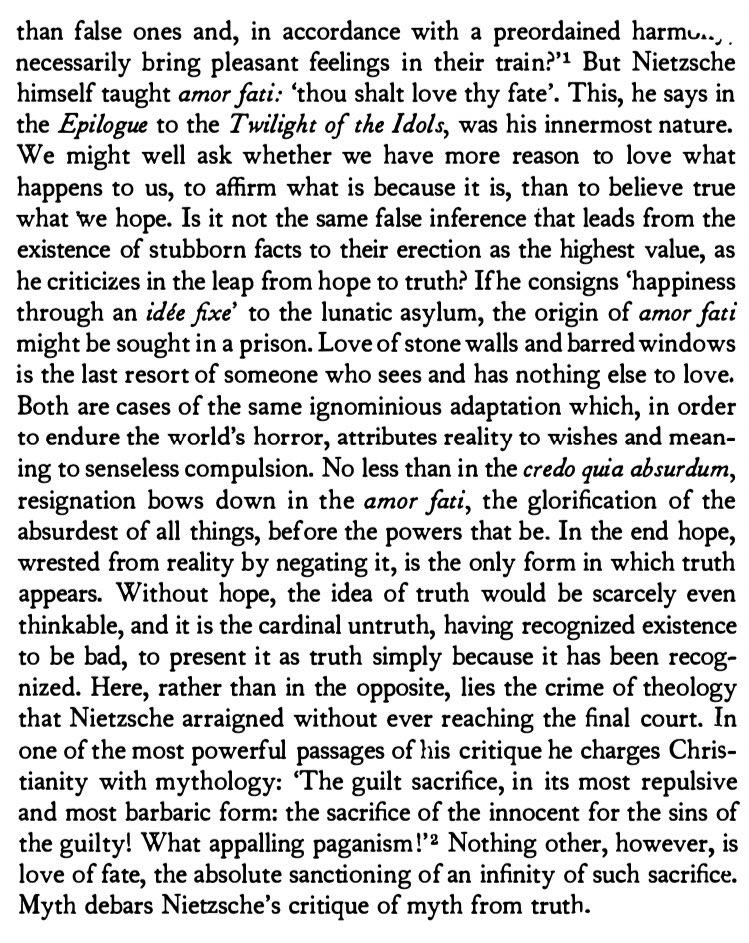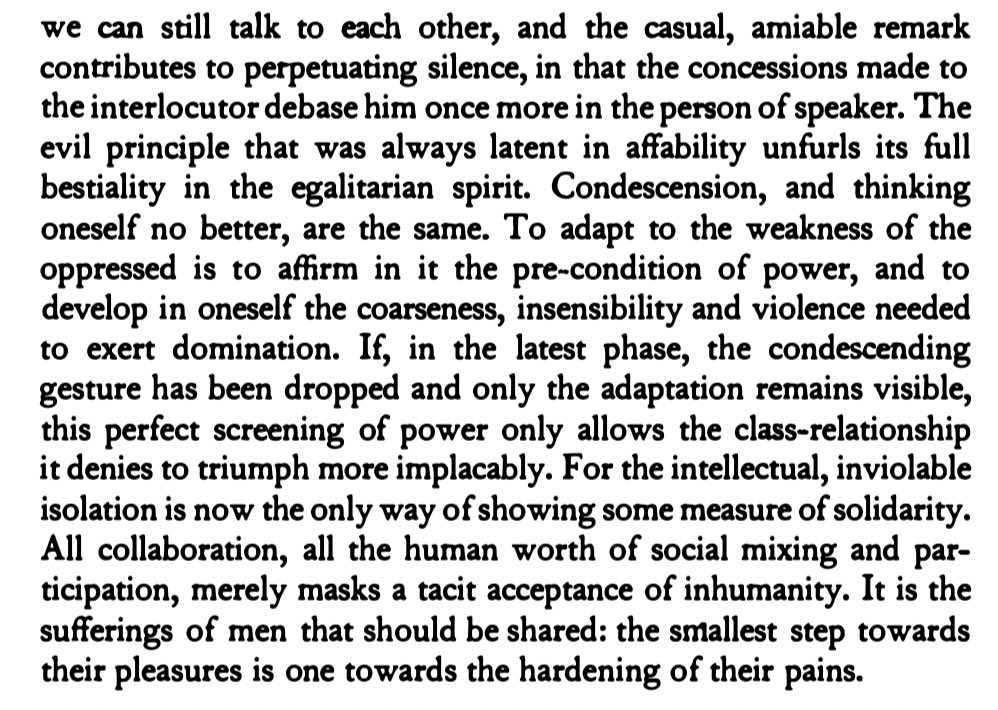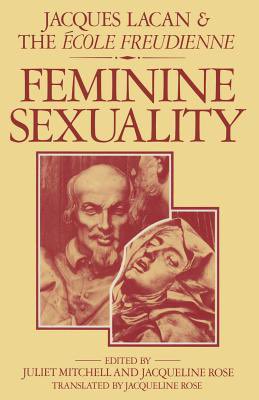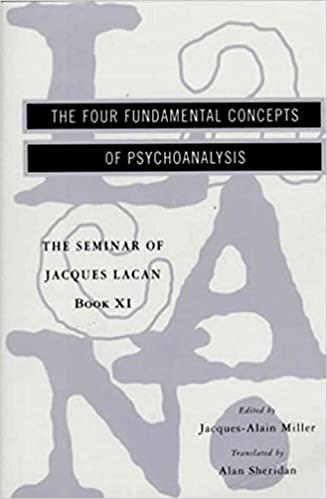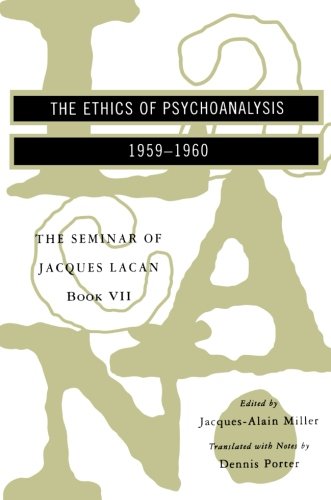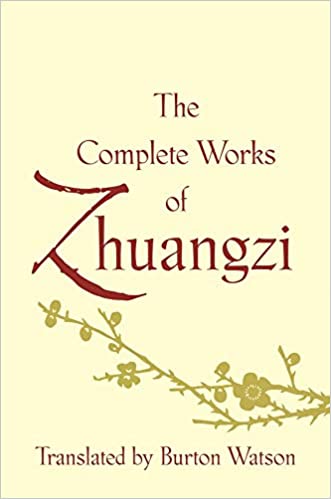apropos of nothing, some #basic reflections on philosophy & philosophers that have had the biggest influence on me, i mean as an actual person, as a living, thriving thing. philosophy as cultivation of a good life.
Deleuze's brief, pamphlet-like Spinoza: Practical Philosophy is practically a self-help book, & I have recommended it as such. Cultivate the capacity for joyous encounters, for being affected by things in a manner that increases your power of action/affection & of being affected.
Deleuze in his work in general makes a superb case that there is no point in cultivating sad affects; nothing cool, good, or radical about depression, negativity; that by decreasing your power for action, endurance, & transformation, they are fatally disempowering.
I think this is a message a lot of people radically opposed to this world need to hear; I sure needed to hear it. You're no good to anyone dead, or as good as dead. Concretely, actually, insurrection is joyous; you know this. So live in a way that makes this more possible.
I think of Nietzsche's Genealogy of Morals every time I begin to suspect that I'm caught in some sort of a super-ego trap, deluded into thinking in overly normative terms, measuring things against an imaginary, extrinsic absolute.
Nietzsche's critical point is that if you are thinking this way, you are in fact being dominated. Measures of value external to life, values purported to be transcendental in relation to history, are ideological fictions produced by social relations of power.
Now, this is crucial: Nietzsche's rejection of transcendental values does not make him an anything-goes relativist in some simplistic sense, nor does it make him a domination-worshiping fascist, nor does it make him some coward for whom all evaluations are tainted by power.
Instead, Nietzche is arguing is that value is determined immanently; it is the demands that arise from and out of the process of becoming what we are. It is the demand we make on ourselves, so to speak, but it is no less demanding, no less absolute for this.
The thing that is becoming, that is formulating these demands of itself, demands that, again, arise out of the imperatives & struggles it faces in its becoming, is becoming without end, without telos, always busting open any illusory totalities that would circumscribe possibility
The judgment of god is immanent, or it is nothing; it is the self-determining judgment of the god we are becoming. Do not fall short! We can be dominated by our own mediocrity as much as by social relations of power. "In times of peace, the warlike man attacks himself."
This is why Nietzsche does not belong to reactionaries, why he loathed anti-Semites & nationalists, their "small politics," and murderous scapegoating of their own parochial mediocrity onto bogeymen "others."
wild how the meme wars r recapitulating the struggle over Nietzsche, w/crude, deceitful appropriations by the right & glib condemnations by the left. Nietzsche is the chad, not of incels' resentful fantasies, but of the memes: insouciant, stupid to common sense, beyond good &evil
i have to do actual work now; will continue this thread later w/ Adorno & Lacan
this tweet is about contempo academic writing, but if u wanna read some august letters that absolutely rip, Nietzche, as well as Schopenhauer https://twitter.com/berlantbro/status/1359563661581443075
this is a commercial break to say i'm glad this thread appears to be resonating with people; somebody please give me a column, i am reliable when paid to be 

The necessary counterpoint to Deleuze's & Nietzche's philosophy of joy for me is Adorno, for whom it is essential to suffer & to cultivate the capacity to share the suffering of others in the face of injustice. Minima Moralia speaks most directly and disconsolingly to this ethic.
Adorno is my model critical intellectual. He is uncompromising but dialectical. He refuses to relinquish thought's aspirational autonomy bc the free life refuses exchange, utility, domination, but is painfully aware it's impossible precisely bc domination DOES carry the day.
Adorno shares w/ Deleuze & Nietzsche an ethic: Be worthy of what happens to you. For D & N this means embracing your fate, eternal recurrence; for A this means recognizing & rejecting the falsity of a world that falls short of its promise, the irrationality of its atrociousness.
The most horrifying thing about this world is that cruelty and stupidity seem ineradicable, not because they are part of some mythical human nature, but bc they are *learned.* Mass insensitivity to needless suffering is the accreted product of a civilization built on domination.
Adorno shares w/ Deleuze emphases on cultivating the capacity of being affected, the immanence of values, & capitalism as, essentially, an irrational system of mass disempowerment & collective suicide.
Adorno's philosophy of art is probably the single biggest influence on how i think about what is probably, alongside friendship, the most important thing in life. Art incarnates life's broken promise; it reminds us of what we have lost w/o pretending to be able to restore it.
Art is at once a prognosis & a protest, a symptom & palliative. "Art is magic delivered from the lie of being truth." Adorno's aesthetics cannot be "applied" willy nilly; it's a whole historical narrative. But it still speaks to core issues of art's relationship to power, truth.
It's hard to say "read Adorno" bc it really is such a specialist thing & doesn't pretend otherwise. But read Minima Moralia, his writings on music, read short pieces from volumes of collected essays—these can really teach you something w/o having to have read Kant/Hegel first lol
If it's hard to say "read Adorno," it's impossible to say "read Lacan." Read Joan Copjec and Bruce Fink and comic book guides/intros to Lacan. Read Lacan's seminars, not the Écrits. Don't neglect that psychoanalysis is a practice, not a theory toolkit (as it's often treated).
It's next to impossible to say "read *this* Lacan," but Seminar 11 (The Four Fundamental Concepts), the Mirror-Phase essay, & the edited collection "Feminine Sexuality" might be a decent starter kit.
It's challenging to summarize what psychoanalysis has done for me as an ethical creature, as opposed to an intellectual influence, so this will be kind of scattered. 1) Whatever you think you think is probably wrong. Lacan talks about empty speech & full speech:
Empty speech is you bullshitting yourself; it is speech captivating you to an inert, imaginary image of who you think you are. Be suspicious of anyone who can give too clear an account of themselves, especially if that's you. Empty speech is empty precisely bc it communicates.
Full speech, by contrast, is speech revealing of the unsconscious, often speech that enacts desire, and it is going to be unflattering, unsettling, what leads to disabusing yourself of what you mistakenly thought you were. Speech is full often where it fails.
If u talk to yrself in the free-associative manner of analysis, u quickly realize how unfree your speech is, how structured in advance by the discourse of the other, and this can both dissipate false problems while compelling a confrontation w/real ones.
What goes for you goes for others: people have no idea what they are doing, no idea of what they are really thinking or want. Demanding others explain themselves will only make it worse. If you take this as the rule, it's easy to be patient, generous, forgiving w/o condescension.
2) Desire is mislaid. Just as yr probably wrong about what u think u think, yr probably mistaken about what u think u want, not merely bc u might REALLY want something else (maybe, maybe not) but bc what desire desires is desire & objects are just detours.
There's no point in yucking other's yums where nothing is really at stake; they know not what they do, & neither do you. There's always something pathological in any enjoyment. Not understanding this is what gets u redpilled & resentful.
Edgelords think it's a devastating critique to show that someone's libidinal investments are mislaid (ppl care about the "wrong" thing, their sense of proportion is off, they are pathological), when this is just a banal fact. Like, no shit, most people are dumbasses & so are you.
And we are all most definitely dumbasses about what we most enjoy—that's the point—so the question is not of the correctness of desire as it is of getting over, sometimes, its false objects (the imaginary, the ego) and, other times, the falsity of its objects (crafting sinthome).
4) That all said: fuck it. Do not give up on your desire. We're talking about the real shit, not the illusions of empty speech. The desire that pierces you out of the real, that upends your symbolically constructed reality, that law-like sentences u to die rather than give it up.
I feel like Lacan, despite his criticisms, is the most crypto-existentialist of the "French theorists," he just turns existentialism inside out: authenticity lies in authentic disarrangement, the "destitution" of the subject, becoming other.
5) Behind every word a person says is a demand for love.
6) "Freud wanted us to enter into a common human unhappiness, into a sober sense of what is possible." (Jamieson Webster) We are doomed to be unhappy, but certain unbearable problems can be made more bearable by asking why it's a problem that this problem is a problem.
For a long time, Lacan's fundamental message was: accept your castration, i.e., your incompleteness, your impotencies, find a symbolic order, a law to accept. It takes a fucking heroic amount of work to just be a well-adjusted human being in this world.
This was not to say: be a conformist piece of shit. As Adorno said, "There is no right consciousness in the wrong world." But there must be a degree of reconciliation, authentically assumed, that allows one to live—or to die, actually or symbolically, faithful to one's desire.
It's called a reality principle, and we are spiraling towards extinction because we don't have one.
Later, Lacan got wackier. Rather than emphasize submission to desire's law, with all its potentially destructive consequences, he emphasized ways of potentially sidestepping the entire problematic: woman, not-All, Joyce, sinthome... This is Lacan as insouciant meme chad.
okay drank coffee, finally awake, time to talk Zhuangzi. The Zhuangzi is one of the most delightful & astonishing documents ever created, & studying it has influenced how I think about living more than anything else lately.
I say "studying" b/c reading this or any text with an eye to the art of living is a necessarily open-ended project; I will return to certain texts forever. I hope to engage w/Z with some amount of understanding of classical Chinese in the future. Now I read Burton-Watson's trans.
my most recommended supplemental readings: AC Graham, HG Creel, this amazing collection "Experimental Essays on Zhuangzi"
I was intro'ed to Chinese philosophy auditing a course by Kwong-loi Shun @ UCBerkeley. His take on the famous butterfly dream passage was illustrative. As we know: Z wakes up from a dream in which he was a butterfly. He wonders if he's actually a butterfly dreaming he's a man.
Prof Shun's point was, English-language philosophical engagement w/the passage tends to start off on the wrong foot. It's NOT ab ontology or epistemology ("omg what's real & how do we know?!"). It's ab how u live. This world might as well be a dream. Does that change anything?
The implied contention is: It does not. The world is essentially transforming, contingent, all things always in the process of becoming & vanishing; it may as well be a dream. This doesn't change the question how to live & flourish both as an individual & as a part of wholes.
To me, the image of the butterfly suggests the levity w/which we should live & the inseparability of our own flourishing from the that of what we flourish with. You can't think about butterflies w/o thinking about flowers & plants, for instance.
Insofar as there is an ontological dimension to the parable, the butterfly—which immediately evokes metamorphosis—is suggestive of the delicate balance b/w essence & mutability in the cosmology that hazily emerges from the Zhuangzi.
It is b/c the cosmos is essentially inessential, the most radical becoming, that the finite creatures that inhabit it DO have their own short-lived natures or essences. The butterfly transforms; but it transforms the way it does, & not another way, b/c that's its nature.
(Note: Altho Zhuangzi is the most irreverent, anarchistic of the sages, the premise that the universe ultimately is radically formless, contingent, w/o any enduring principle but transformation, lends itself just as well to conservative philosophies preoccupied w/ finite natures)
I would say that even the butterfly's characteristic flutter is suggestive of Zhuangzi's prescription of "free and easy wandering," allowing oneself to take an itinerant path, moving supplely, from flower to flower, not resisting the wind & in truth not having the capacity to.
How does one thrive? By not resisting the Dao, that is, the course of becoming. All natures being finite & at some point mutable, all boundaries being porous, becoming is essentially relational, so that one's flourishing must coincide with the flourishing of what one is a part
The recurrent metaphor in the classics is music: when everything thrives together, it is like a musical ensemble, all things minutely responsive to one another, resonating, in a process that *feels* natural & organic, producing what Nylan translates as "relational pleasure."
(The character for this pleasure/happiness/joy, pronounced lè, written 乐 or 樂, recurs with a different pronunciation, yuè, in the word for music, yīnyuè, 音乐 or 音樂.)
The easy quality which is attributed to living in accordance with the Dao is misunderstood if it is thought of as just "going with the flow." It is the product of cultivation, an an exquisite refinement of skill, sensitivity, attitude that is always practical, concrete, hard won.
The exemplars of this way of living, besides Zhuangzi, basically an itinerant bum, are lowly & innocuous craftsman like the famous Chef Ding, whose blade remains perpetually sharp b/c it moves in the gaps which present themselves within the sinews of what he is carving.

 Read on Twitter
Read on Twitter